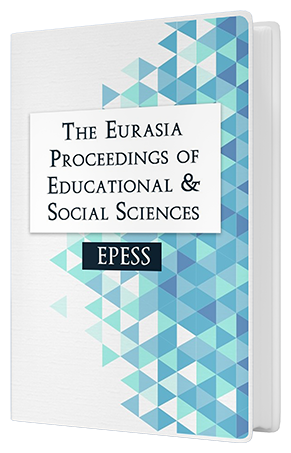Components and Predictors of Psychological Wellbeing in Young Adults
DOI:
https://doi.org/10.55549/epess.1221491Keywords:
Psychological wellbeing, Young adults, Psychological wellbeing scaleAbstract
Psychological wellbeing, which refers to the overall healthy functioning of a person, is a crucial asset. It is a combination of effective functioning and feeling good of one's surroundings. To achieve and maintain psychological wellbeing is very important for any stages of life, especially for young adults. Young adults go through multiple significant transitions in life. The main aim of the current study was to discover the components and predictors of psychological wellbeing of young adults and develop an effective intervention program to enhance their psychological wellbeing. The study was carried out in three different stages. A mixed-method design was implemented to conduct the study. The 42 items Ryff's Psychological Wellbeing Scale was chosen in the first stage for its optimal usability to measure psychological wellbeing. It needed to be adapted for the Bangladeshi population before conducting the study using this tool. So, in the first stage the adaptation took place. The English and Bangla Psychological Wellbeing Scale had a significant positive correlation. In the second stage Bangla Psychological Wellbeing Scale was administered to a 301-representative sample of young adults. The goal of the second stage was to identify the factors related with psychological wellbeing. In the third stage of the current study aimed to create an effective intervention program to improve the psychological wellbeing of the young adults. This study reinforces the six-factor model of psychological well-being by Ryff (1989) in the design of psychological wellbeing program of young adults.Downloads
Published
Issue
Section
License
Copyright (c) 2022 The Eurasia Proceedings of Educational and Social Sciences

This work is licensed under a Creative Commons Attribution-NonCommercial-ShareAlike 4.0 International License.
The articles may be used for research, teaching, and private study purposes. Any substantial or systematic reproduction, redistribution, reselling, loan, sub-licensing, systematic supply, or distribution in any form to anyone is expressly forbidden. Authors alone are responsible for the contents of their articles. The journal owns the copyright of the articles. The publisher shall not be liable for any loss, actions, claims, proceedings, demand, or costs or damages whatsoever or howsoever caused arising directly or indirectly in connection with or arising out of the use of the research material. All authors are requested to disclose any actual or potential conflict of interest including any financial, personal or other relationships with other people or organizations regarding the submitted work.




